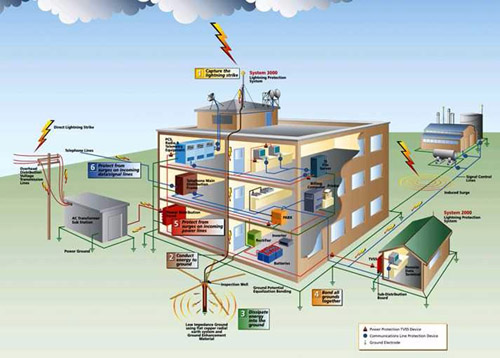
You can interact and ask questions. The cost of the training also includes 7 days of email mentoring with the instructor.
Building Electrical Systems - Our 12-Hour live online instructor-led training course addresses all typical electrical power systems existing in buildings from the input service supply to the more complex protection and control systems required in order to achieve maximum performance.
This Building Electrical Systems course teaches how various subsystems interact through coordination, in order to maintain optimal performance.
Our Integrated Building Electrical Systems training course is designed to assist organizations to identify opportunities for retrofitting existing commercial buildings or how to design Integrated Building Electrical Systems technology into new building engineering designs.
With the rapid integration of various elements of Building Electrical Systems, it is important to design, build and maintain Building Electrical Systems as an overall connected system, as opposed to sets of individual subsystems. Building Electrical Systems include: Utility and building Generation power input sources, UPS, Electrical Protection, Power Quality, Electrical Grounding, Energy Management, Fire Safety, Communications, Vehicle Charging, Building Automation, etc.
This course teaches how these various higher power subsystems integrate and work together to form a robust, properly coordinated and functioning single phase electrical energy power systems.
This real-world-based Integrated Building Electrical Systems Training course will give you a broad introduction to the specific issues involved with Building Automation Systems (BAS).
Learn about sensing and measurement, actuation, analog output devices, and relays.
This Integrated Building Electrical Systems training course will enable you to identify and describe the major components in an Integrated Building Electrical Systems along with the basic mechanical components and controls.
LEARNING OBJECTIVES
Building Electrical Systems Training Course Outline
DAY ONE
1. ENGINEERING AND MAINTENANCE CONSIDERATIONS
2. POWER INPUT SERVICE
3. DISTRIBUTION AND ELECTRICAL PANELS AND MCCs
4. TRANSFORMERS
5. AUTOMATIC TRANSFER SWITCHES (ATS)
6. BACKUP GENERATION
7.UNINTERRUPTIBLE POWER SUPPLY (UPS)
8. LIGHTNING PROTECTION
9. BUILDING GROUNDING SYSTEMS
10. FIRE PROTECTION SYSTEMS
11. SECURITY SYSTEMS
12. BUILDING AUTOMATION SYSTEMS
13. ENERGY MANAGEMENT SYSTEMS
14. BUILDING ILLUMINATION SYSTEMS
15. GREEN BUILDING REQUIREMENTS
COURSE TIMETABLE
Both days:
Start: 10 am ET
Finish: 4:30 pm ET
The registration fee to attend this live online training course is $599 + GST/HST.
Click Here to download a $100 discount coupon that you can apply toward the regular registration fee and pay only $499 + GST/HST
Register 3 delegates at full price $599, and get a 4th registration FREE!
Successful completion of this course qualifies delegates to receive a certificate of course completion with indicated CEUs.
CEUs are granted by the Engineering Institute of Canada. One CEU is equivalent to 10 professional development hours of instruction.
This course earns 1.2 CEUs.